
Hydro
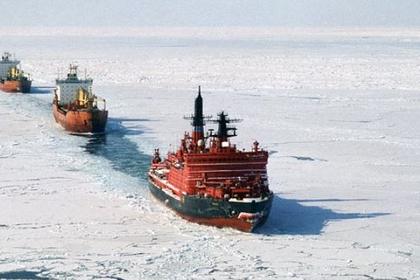
2018, October, 1, 11:40:00
RUSSIAN ENERGY - 2018
REW-2018 - Russian President Vladimir Putin will take part in the plenary session ‘Sustainable Energy for a Changing World’ during the Russian Energy Week International Forum.
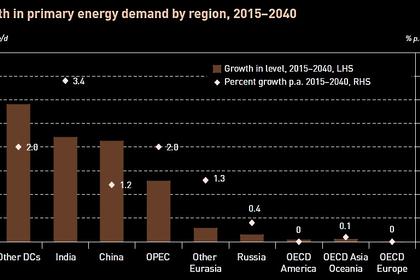
2018, September, 26, 09:35:00
OPEC: GLOBAL ENERGY DEMAND WILL UP BY 33%
OPEC - Total primary energy demand is expected to increase by 91 mboe/d between 2015 and 2040 to reach 365 mboe/d in 2040
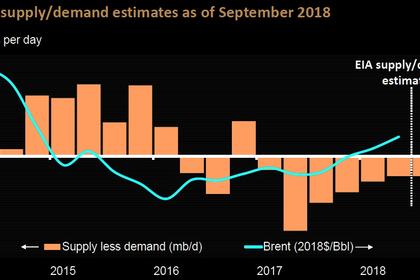
2018, September, 24, 15:15:00
THE TRADE WAR LIMITING U.S.
API - “Placing constraints on exports of American-made energy works against America’s energy future,” said API Chief Economist Dean Foreman. “While the picture is still a bit muddied, it seems to be getting clearer – the trade war appears to be limiting the United States’ access to crude export markets. As we produce more energy here at home, the U.S. needs markets for its products in order for our economy to continue to grow. There’s no question that the 1.6 MBD increase U.S. petroleum net imports, which undid a full year’s worth progress, is a setback to the United States’ goal of energy dominance.”
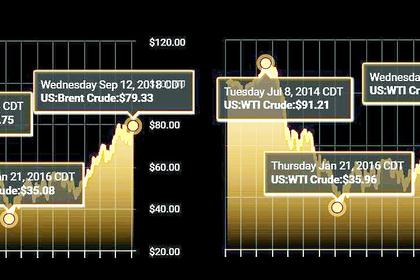
2018, September, 12, 11:35:00
OIL PRICES 2018-19: $73-$74
U.S. EIA - EIA expects Brent spot prices will average $73/b in 2018 and $74/b in 2019. EIA expects West Texas Intermediate (WTI) crude oil prices will average about $6/b lower than Brent prices in 2018 and in 2019. NYMEX WTI futures and options contract values for December 2018 delivery that traded during the five-day period ending September 6, 2018, suggest a range of $56/b to $85/b encompasses the market expectation for December WTI prices at the 95% confidence level.

2018, August, 29, 10:10:00
SOUTH AFRICA NUCLEAR STATIC
WNN - A draft updated Integrated Resource Plan (IRP) approved by South Africa's cabinet on 22 August sees the country's nuclear capacity remaining at its current 1830 MWe over the period to 2030. Energy Minister Jeff Radebe yesterday released the plan for public comment.
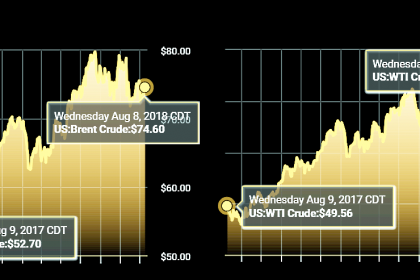
2018, August, 8, 12:05:00
OIL PRICES 2018 - 19: $72 - $71
EIA - Brent crude oil spot prices averaged $74 per barrel (b) in July, largely unchanged from the average in June. EIA expects Brent spot prices will average $72/b in 2018 and $71/b in 2019. EIA expects West Texas Intermediate (WTI) crude oil prices will average about $6/b lower than Brent prices in 2018 and in 2019.
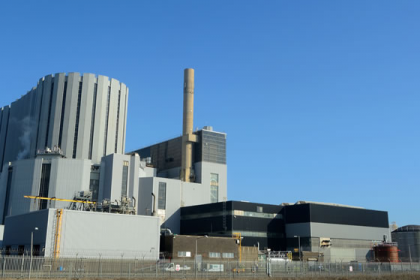
2018, August, 1, 09:15:00
EDF NUCLEAR & HYDRO UP
PLATTS - EDF maintained its annual French nuclear output target of 395 TWh and reported further progress in the regulator-requested Creusot review of its entire nuclear fleet with 34 reactors now cleared and 48 files submitted to the ASN by July 30.
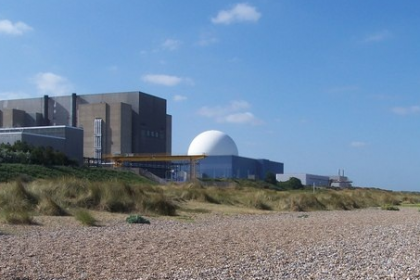
2018, July, 27, 12:05:00
BRITAIN'S NUCLEAR POWER: 21%
WNN - The Digest of UK Energy Statistics (DUKEs), published today by the Department for Business, Energy and Industrial Strategy (BEIS), shows low-carbon sources of electricity accounted for a record 50.1% of power generated in the UK in 2017, which is up from 45.6% the previous year. This figure consists of 21.0% from nuclear, 14.8% wind (onshore and offshore), 3.4% solar and 2.3% hydro amongst low-carbon power sources.
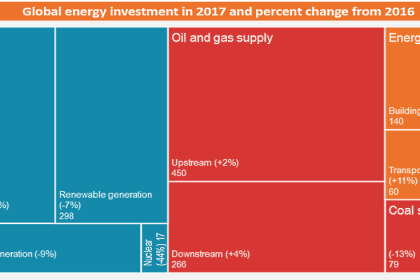
2018, July, 23, 13:25:00
GLOBAL ENERGY INVESTMENT DOWN 2%
IEA - For the third consecutive year, global energy investment declined, to USD 1.8 trillion (United States dollars) in 2017 – a fall of 2% in real terms. The power generation sector accounted for most of this decline, due to fewer additions of coal, hydro and nuclear power capacity, which more than offset increased investment in solar photovoltaics.
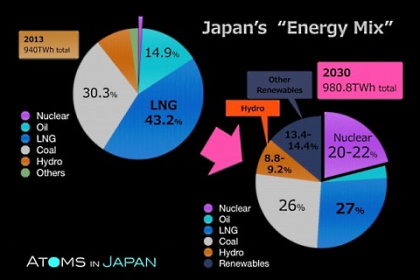
2018, July, 4, 12:01:00
THE NEW JAPAN'S ENERGY PLAN
WNN - A new basic energy plan that sets goals for Japan's energy mix to 2030 and presents scenarios to 2050 was today approved by the Cabinet. Under the plan, nuclear will remain a key energy source, accounting for 20-22% of the country's electricity generation up to 2030.

2018, June, 15, 11:10:00
BP: GROWTH IN ENERGY DEMAND UP
BP - In 2017 global energy demand grew by 2.2%, above its 10-year average of 1.7%. This above-trend growth was driven by stronger economic growth in the developed world and a slight slowing in the pace of improvement in energy intensity.
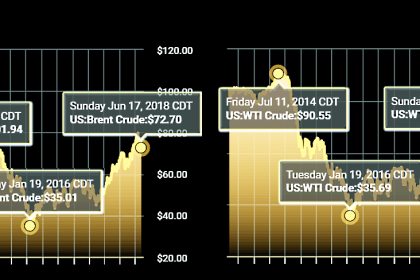
2018, June, 13, 13:10:00
OIL PRICES: 2018 - $71, 2019 - $68
EIA - Brent crude oil spot prices averaged $77 per barrel (b) in May, an increase of $5/b from the April level and the highest monthly average price since November 2014. EIA forecasts Brent spot prices will average $71/b in 2018 and $68/b in 2019. The 2019 forecast price is $2/b higher than in the May STEO. EIA expects West Texas Intermediate (WTI) crude oil prices will average almost $7/b lower than Brent prices in 2018 and $6/b lower than Brent prices in 2019
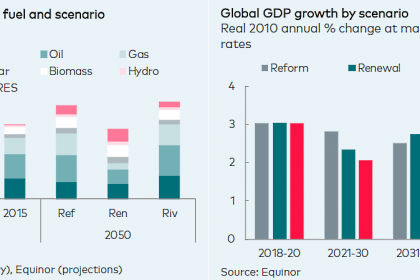
2018, June, 8, 13:15:00
OIL DEMAND UP TO 2030
PLATTS - Global oil demand will peak around 2030 at 111 million b/d as a sharp rise in electric vehicles and energy efficiency gains offset growing demand from the aviation and petrochemical sectors, Norwegian producer Equinor said
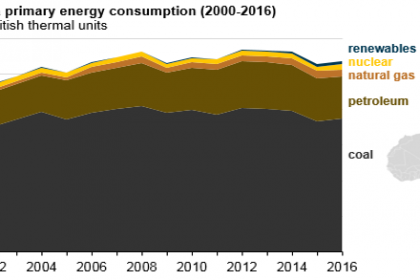
2018, February, 2, 12:05:00
SOUTH AFRICA'S GAS UP
EIA - South Africa is one of the world’s leading emitters of energy-related carbon dioxide (CO2), ranking fifteenth globally in 2015 and accounting for more than any other country in Africa. In an effort to reduce CO2 emissions, South Africa is planning to diversify its energy portfolio, replacing coal with lower CO2-emitting fuels such as natural gas and renewable sources. The country’s Intended National Determined Contribution, submitted as part of the Paris Agreement, plans for CO2 emissions to peak by 2025, remain flat for a decade, and begin to decline around 2035.
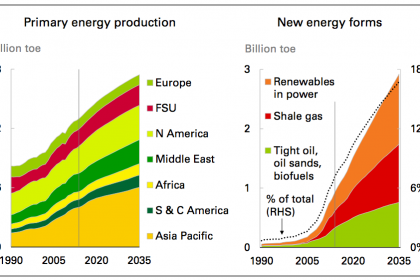
2017, June, 21, 11:25:00
BP ENERGY REVIEW
Bob Dudley, BP group chief executive, said: “Global energy markets are in transition. The longer-term trends we can see in this data are changing the patterns of demand and the mix of supply as the world works to meet the challenge of supplying the energy it needs while also reducing carbon emissions. At the same time markets are responding to shorter-run run factors, most notably the oversupply that has weighed on oil prices for the past three years."





